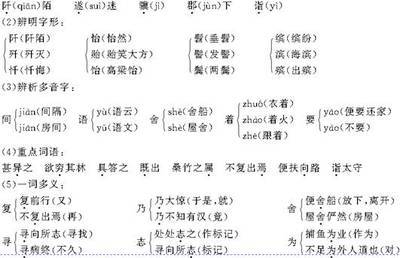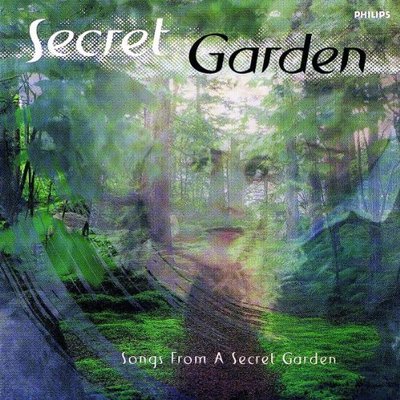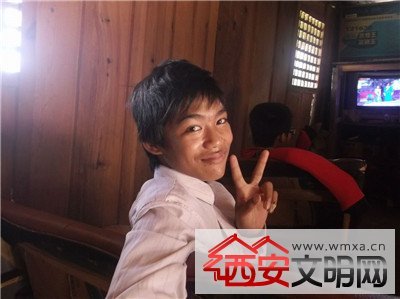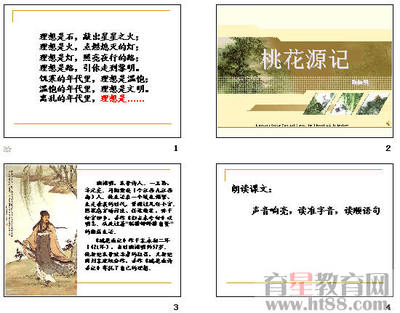桃花源记
【晋•陶渊明】
An Idyllic Land of Peach-BlossomSpring
Tao Yuanming from Jin Dynasty
Tr. by 许景城(Peter CooperXu)
晋太元中,武陵人捕鱼为业,缘溪行,忘路之远近。忽逢桃花林,夹岸数百步,中无杂树,芳草鲜美,落英缤纷;渔人甚异之。复前行,欲穷其林。
Amid the Taiyuan era ofEastern Jin Dynasty, there was a fisherman, a native of Wulingrowed his boat along a brook, not mindful of how far he had touredwhen suddenly he came across a blossoming peach grove flanking thebanks continuously for hundreds of footsteps. The peach grove withno other sundry trees was permeated of sweet fragrance, fresh greengrass, and falling and fallen blossoms. The fisherman withappealing surprise again rowed further, with a desire to explorehow far it extended.
林尽水源,便得一山。山有小口,仿佛若有光,便舍船,从口入。初极狭,才通人;复行数十步,豁然开朗。土地平旷,屋舍俨然。有良田、美池、桑、竹之属,阡陌交通,鸡犬相闻。其中往来种作,男女衣着,悉如外人;黄发垂髫,并佁然自乐。
When the grove faded awayat the end of the brook, he found himself in front of a mountainwith a small opening from which a light loomed. He thus left hisboat and walked into the opening which at first was found to be sonarrow that only one could pass through it. After walking forwardfor a few footsteps, he discovered it led to an open air where flatand wide was the land with well-arranged houses, rich fields,beautiful ponds, mulberries, bamboos and the like. He saw the pathsintersecting the fields in all directions, and heard cocks crowingand dogs barking. Here, men and women passing back and forth orworking in the fields dressed almost the same as people outside.The grizzled-haired and children with uncoiled hairs seemed happyand complacent.
见渔人,乃大惊,问所从来;具答之。便要还家,设酒、杀鸡、作食。村中闻有此人,咸来问讯。自云:先世避秦时乱,率妻子邑人来此绝境,不复出焉;遂与外人间隔。问今是何世?乃不知有汉,无论魏、晋!此人一一为具言所闻,皆叹惋。余人各复延至其家,皆出酒食,停数日,辞去。此中人语云:“不足为外人道。”
People were so astonishedto see this outsider, and asked him where he came from. After thefisherman answered all the questions, he was invited to their homeswhere they served wine and killed chicken to offer a feast. Whenthe news of the fisherman’ visit spread out to other villagers,they all came to greet him. Then, they told the outsider that theirancestors, fleeing from the disorder and chaos during the Qinreign, had come with their wives and children to this idyllic land,and had never gone out since, leaving themselves secluded fromoutsiders. When they asked what dynasty it was at present, they hadno idea of there having been dynasties such as Han, Wei and Jin.The outsider related all he knew in detail, event by event and theyheaved frequent sighs and sorrows. The villages by turns invitedhim to their houses where he was entertained with wine and food. Hestayed for a few days. When he decided to leave, people of thisplace implored him, “It is advisable not to reveal this place toothers.”
既出,得其船,便扶向路,处处志之。及郡下,诣太守,说如此。太守即遣人随其往,寻向所志,遂迷不复得路。
After he came out and gothis boat, he retraced and marked the route where he had come. Whenhe reached the town, he visited the prefect, and narrated the wholestory to him who immediately sent his pawns to go with thefisherman to look for that place. They followed the trail markersbut got lost and never found the way.
南阳刘子骥,高尚士也,闻之,欣然规往,未果,寻病终。后遂无问津者。
At this news, Liu Ziji fromNanyang, a gentleman, gleefully decided to seek for this place, buthe ailed and died before he could fulfill his plan. From then on,no one else ever quested for that land.
Notes:
1.Tao Yuanming (365- 427AD), from Eastern Jin Dynasty, was afamous Chinese pastoral poet.
2.This prose was written by Tao Yuanming in the second year (421AD) during the era of Yongchu in Eastern Jin Dynasty(永初二年).The poet described an idyllic place likeShangri-La in pursuit of a peaceful and self-sufficient societywithout classes, and exploitation, which was in sharp contrast withhis contemporary society.
3.The Taiyuan Era started from 376AD to 396 AD.
4.Qin period extended from 221BC to 208BC.
5.Han Dynastyreigned from 206 BC to 220AD.
6.Wei Dynasty reigned from 220AD to 265AD.
其他译文:
译文1:
Peach-Blossom Source
Tr. by A. R. Davis
During the Taiyuan period (376--396) of Jin a man of Wuling, whomade his living as a fisherman, ascended a stream, forgetful of thedistance he traveled. Suddenly he came upon a grove of peach treesin blossom. They lined the banks for several hundred paces: amongthem were no other kinds of tree. The fragrant herbage was freshand beautiful; fallen blossom lay in profusion. The fisherman, inextreme wonder, again went forward, wishing to go to the end of thegrove.
The grove ended at the stream's source, and there he found ahill. In the hill was a small opening from which a light seemed tocome. So he left his boat and went in through the opening. At firstit was very narrow, barely allowing a man to pass, but as he wenton for some tens of paces, it came out into the open air, uponlands level and wide with houses of a stately appearance. Therefine fields and beautiful pools, clumps of mulberries and bamboos.The field dykes intersected; cocks crowed and dogs barked to eachother. The clothes of the men and women who came and went, plantedand worked among them were entirely like those of people outside.The white-haired and the children with their hair in tufts happilyenjoyed themselves.
When they saw the fisherman,they were greatly surprised and asked from what place he came. Whenhe had answered all their questions, they invited him to come backto their home, where they set out wine, killed a chicken and made ameal. When the villagers heard of this man, they all came to paytheir respects. They told him that their ancestors, fleeing fromthe troubles during the Qin period (221BC--208BC), had broughttheir wives and children and neighbours to this inaccessible spotand had not gone out again. Thus they became cut off from peopleoutside. They asked what dynasty it was now: they did not know thatthere had been Han (206 BC--220AD), nor of courts Wei (220--265AD)or Jin. The fisherman told them all he knew, item by item, and ateverything they sighed with grief. The others in turn also invitedhim to their homes, and all set out wine and food. He stayed forseveral days and then took leave of them. The people of this placesaid to him: "You should not speak of this to those outside."
When he had gone out, he foundhis boat and followed the route by which he had come: everywhere henoted the way. When he reached the commandery, he called on theprefect and told him this story. The prefect immediately sent a manto go with him and seek out the places he had previously noted, butthey went astray and could not find the way again.
Liu Ziji of Nanyang, who was a scholar of lofty ideals, heard ofit and joyfully planned to go. Soon after, before he had carriedout his plan, he fell ill and died. Afterwards there was no one who"sought the ford".
译文2:
Peach BlossomShangri-la
Tao YuanMing[1]
Tr. and Proofed by Rick Davis and DavidSteelman
During the Taiyuan era [2]of the Jin Dynasty [3] there was a man of Wuling [4] who made hisliving as a fisherman. Once while following a stream he forgot howfar he had gone. He suddenly came to a grove of blossoming peachtrees. It lined both banks for several hundred paces and includednot a single other kind of tree. Petals of the dazzling andfragrant blossoms were falling everywhere in profusion. Thinkingthis place highly unusual, the fisherman advanced once again inwanting to see how far it went.
The peach trees stopped atthe stream's source, where the fisherman came to a mountain with asmall opening through which it seemed he could see light. Leavinghis boat, he entered the opening. At first it was so narrow that hecould barely pass, but after advancing a short distance it suddenlyopened up to reveal a broad, flat area with imposing houses, goodfields, beautiful ponds, mulberry trees, bamboo, and the like. Thefisherman saw paths extending among the fields in all directions,and could hear the sounds of chickens and dogs. Men and womenworking in the fields all wore clothing that looked like that offoreign lands. The elderly and children all seemed to be happy andenjoying themselves.
The people were amazed tosee the fisherman, and they asked him from where he had come. Hetold them in detail, then the people invited him to their home, setout wine, butchered a chicken [5], and prepared a meal. Othervillagers heard about the fisherman, and they all came to ask himquestions. Then the villagers told him, "To avoid the chaos of warduring the Qin Dynasty [6], our ancestors brought their familiesand villagers to this isolated place and never left it, so we'vehad no contact with the outside world." They asked the fishermanwhat the present reign was. They were not even aware of the HanDynasty [7], let alone the Wei [8] and Jin. The fisherman told themeverything he knew in great detail, and the villagers were amazedand heaved sighs. Then other villagers also invited the fishermanto their homes, where they gave him food and drink. After severaldays there, the fisherman bid farewell, at which time somevillagers told him, "It's not worth telling people on the outsideabout us." [9]
The fisherman exitedthrough the opening, found his boat, and retraced his route whileleaving markers to find this place again. Upon his arrival at theprefecture town he went to the prefect and told him what hadhappened. The prefect immediately sent a person to follow thefisherman and look for the trail markers, but they got lost andnever found the way.
Liu Ziji [10] of Nanyang[11] was a person of noble character. When he heard this story hewas happy and planned to visit the Shangri-la, but he died ofillness before he could accomplish it. After that no one else everlooked for the place.
Translator's Notes:
[1] Chinese nature poet, c. 365-427. This prose story is one of thepoet's most well-known works.
[2] 376-396.
[3] 265-420 (actually two sequential dynasties, the "Western" andthe "Eastern").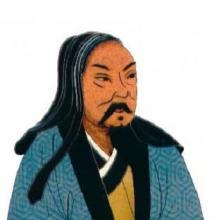
[4] A place in present-day Hunan Province.
[5] "...set out wine, butchered a chicken": A stock phrase meaningto entertain a guest lavishly.
[6] 221-206 B.C.
[7] 206 B.C. to A.D. 220.
[8] A.D. 220-265.
[9] The villagers would just as soon keep their existencesecret.
[10] A retired scholar of the Jin Dynasty.
[11] A place in present-day Henan Province.
This translation is based on the SiKuQuanShu text with editorialemendations and punctuation by the translators. It was done by RickDavis (Japan) with help from David Steelman (Taiwan).
译文3:
The Peach Blossom Spring
Tr. by James Robert Hightower
During the Tai-yuan periodof the China dynasty a fisherman of Wu-ling once rowed upstream,unmindful of the distance he had gone, when he suddenly came to agrove of peach trees in bloom. For several hundred paces on bothbanks of the stream there was no other kind of tree. The wildflowers growing under them were fresh and lovely, and fallen petalscovered the ground———it made a great impression on the fisher-man.He went on for away with the idea of finding out how far the groveextended.
It came to an end at thefoot of a mountain whence issued the spring that supplied thestreams. There was a small opening in the mountain and it seemed asthough light was coming through it. The fisherman left his boat andentered the cave, which at first was extremely narrow, barelyadmitting his body, after a few dozen steps it suddenly opened outonto a broad and level plain where well-built houses weresurrounded by rich fields and pretty ponds. Mulberry, bamboo andother trees and plants grew there, and criss-cross paths skirtedthe fields. The sounds of cocks crowing and dogs barking could beheard from one courtyard to the next. Men and women were coming andgoing about their work in the fields. The clothes they wore werelike those of ordinary people. Old men and boys were carefree andhappy.
When they caught sight ofthe fisherman, they asked in surprise how he had got there. Thefisherman told the whole story, and was invited to go to theirhouse, Where he was served wine while they killed a chicken for afeast. When the other villagers heard about the fisherman’sarrival, they all came to pay him a visit. They told him that theirancestors had fled the disorders of Ch'in times and, having takenrefugee here with wives and children and neighbours, had neverventured out again consequently they had lost all contact with theout-side world. They asked what the present ruling dynasty was, forthey had never heard of the Han, Let alone the Wei and the Jin.They sighed unhappily as the fisherman enumerated the dynasties oneby one and recounted the vicissitudes of each.
The visitors all asked himto come to their houses in turn, and at every house he had wine andfood. He stayed several days. As he was about to go away, thepeople said, "There’s' no need to mention our existence tooutsiders.” After the fisherman had gone out and recovered hisboat, he carefully marked the route. On reaching the city, hereported what he had found to the magistrate, who at once sent aman to follow him back to the place. They proceed according to themarks he had made, but went astray and were unable to find the caveagain.
A high-minded gentleman ofNan-yang named LiuTzu-chi heard the story and happily madepreparations to go there, but before he could leave he fell sickand died. Since then there has been no one interested in trying tofind such a place.
译文4:
The Peach Colony
Tr. by Lin Yutang 林语堂
During the reign of Taiyuanof Chin, there was a fisherman of Wuling. One day he was walkingalong a bank. After having gone a certain distance, he suddenlycame upon a peach grove which extended along the bank for about ahundred yards. He noticed with surprise that the grove had a magiceffect, so singularly free from the usual mingling of brushwood,while the beautifully grassy ground was covered with its rosepetals. He went further to explore, and when he came to the end ofthe grove, he saw a spring which came from a cave in the hill,Having noticed that there seemed to be a weak light in the cave, hetied up his boat and decided to go in and explore. At first theopening was very narrow, barely wide enough for one person to goin. After a dozen steps, it opened into a flood of light. He sawbefore his eyes a wide, level valley, with houses and fields andfarms. There were bamboos and mulberries; farmers were working anddogs and chickens were running about. The dresses of the men andwomen were like those of the outside world, and the old men andchildren appeared very happy and contented. They were greatlyastonished to see the fisherman and asked him where he had comefrom. The fisherman told them and was invited to their homes, wherewine was served and chicken was killed for dinner to entertain him.The villagers hearing of his coming all came to see him and totalk. They said that their ancestors had come here as refugees toescape from the tyranny of Tsin Shih-huang (builder of Great Wall)some six hundred years ago, and they had never left it. They werethus completely cut off from the world, and asked what was theruling dynasty now. They had not even heard of the Han Dynasty (twocenturies before to two centuries after Christ), not to speak ofthe Wei (third century A.D.) and the Chin (third and fourthcenturies). The fisherman told them, which they heard with greatamazement. Many of the other villagers then began to invite him totheir homes by turn and feed him dinner and wine. After a few days,he took leave of them and left. The villagers begged him not totell the people outside about their colony. The man found his boatand came back, marking with signs the route he had followed. Hewent to the magistrate's office and told the magistrate about it.The latter sent someone to go with him and find the place. Theylooked for the signs but got lost and could never find it again.Liu Tsechi of Nanyang was a great idealist. He heard of this story,and planned to go and find it, but was taken ill and died before hecould fulfill his wish. Since then, no one has gone in search ofthis place.
译文5:
Peach-Blossom Springs
Tr. by Roland C. Fang 方重
During the reign of EmperorShao-Wu of Eastern Tsin there was once a native of Wuling, wholived on fishing. One day he rowed up a stream, and soon forgot howfar he had gone. All of a sudden he came upon a peach grove. Forhundreds of paces along both banks of the stream, the peach-treeswere in full bloom. No other trees were to be seen in the wholegrove. The soft grass looked fresh and beautiful. Here and therefalling blossoms were dancing gracefully in a thousand hues. Thefisherman was beside himself with amazement. He went on further inorder to reach the uppermost limits of the grove. As the peachescame to an end, the headsprings of the stream was found to issuefrom the side of a mountain. A narrow cave-like opening showed himsome light that seemed to emerge from within. Leaving his boat heventured in. At first it was just wide enough to admit one person.But after a few dozen paces an extensive view suddenly appearedbefore him. He saw the level plain stretch out far and wide, andthe houses and homesteads all neatly arranged. Rich rice-fields,picturesque ponds, and mulberry and bamboo groves were everywhere.The foot-paths crossed and re-crossed one another. As the cockscrowed, the dogs barked in return. All the inhabitants busiedthemselves with farm work in the same manner as the people outside,so did their men and women attire themselves. The yellow-tressedold folk and the youngsters with flowing hair were all living inself-contentment. Seeing the fisherman they were so eager to findout from whence he came. He made his answers accordingly and wasinvited to their homes to be entertained with chicken and wine.Others in the village, on hearing of the arrival of a stranger,also flocked round to make inquiries. Of their own accord they toldhim of the forefathers who had, during the troublous times of theChins, sought refuge in this place of absolute seclusion togetherwith their families and neighbours. After having settled down herethey never thought of going out again. They had been so cut offfrom the rest of the world that a knowledge of the times would be arevelation to them. They had not heard of the Han Dynasty, not tosay the Wei and the Tsin. The fisherman informed them all aboutthese changes, and they could not help being deeply affected. Thenmore of them asked him to dine by turns. It was not until severaldays later that he begged to take leave. He was bidden, however, tokeep to himself all the things talked about among them, for, theysaid, such matters would not be worth imparting to the outsideworld. Our fisherman came out, found his boat again, and took careto leave marks all along his way home. As soon as he was back tothe city he told his adventure to the magistrate, who sent men togo with him. They tried to trace the marks he had left, but failed,and lost their way thither. A good scholar of Nanyang, on learningof it, was anxious to re-discover the place. Nor did he succeed,and died soon of illness. Ever since then, few have attempted thepassage again
译文6:
A Tale of the Fountain of the PeachBlossom Spring
Tr. by 罗经国
In the year of Taiyuan (2)of the Jin Dynasty, there lived a man in Wuling Prefecture (3) whoearned his living by fishing. One day, he rowed his boat along astream, unaware of how far he had gone when all of a sudden, hefound himself in the midst of a wood full of peach blossoms. Thewood extended several hundred footsteps along both banks of thestream. There were no trees of other kinds. The fragrant grass wasfresh and beautiful and peach petals fell in riotous profusion. Thefisherman was so curious that he rowed on, in hopes of discoveringwhere the trees ended.
At the end of the wood wasthe fountainhead of the stream. The fisherman beheld a hill, with asmall opening from which issued a glimmer of light. He steppedashore to explore the crevice. His first steps took him into apassage that accommodated only the width of one person. After heprogressed about scores of paces, it suddenly widened into an openfield. The land was flat and spacious. There were houses arrangedin good order with fertile fields, beautiful ponds, bamboo groves,mulberry trees and paths crisscrossing the fields in alldirections. The crowing of cocks and the barking of dogs werewithin hearing of each other. In the fields the villagers were busywith farm work. Men and women were dressed like people outside.They all, old and young, appeared happy.
They were surprised atseeing the fisherman, who, being asked where he came from, answeredtheir every question. Then they invited him to visit their homes,killed chickens, and served wine to entertain him. As the words ofhis arrival spread, the entire village turned out to greet him.They told him that their ancestors had come to this isolated haven,bringing their families and the village people, to escape from theturmoil during the Qin Dynasty and that from then onwards, they hadbeen cut off from the outside world. They were curious to know whatdynasty it was now. They did not know the Han Dynasty, not tomention the Wei and the Jin dynasties. The fisherman told them allthe things they wanted to know. They sighed. The villagers offeredhim one hospitality after another. They entertained him with wineand delicious food. After several days, the fisherman took hisleave. The village people entreated him not to let others know oftheir existence.
Once out, the fishermanfound his boat and rowed homeward, leaving marks all the way. Whenhe came back to the prefecture, he reported his adventure to theprefect, who immediately sent people to look for the place, withthe fisherman as a guide. However, the marks he had left could nolonger be found. They got lost and could not find the way.
Liu Ziji of NanyangPrefecture (4), a learned scholar of high repute, was excited whenhearing the fisherman's story. He devised a plan to find thevillage, but it was not carried out. Liu died soon afterwards, andafter his death, no one else made any attempt to find it.
Notes:
(1)This piece of writing is regarded as one of the earliestpieces about Utopianism in ChineseLiterature
(2)Taiyuan was the title of the reign of Emperor Xiaowu of theEastern Jin Dynasty.
(3)Wuling Prefecture is today's Changde City, Hunan Province.
(4) Nanyang is today's Nanyang City, HenanProvince.
译文7:
The Peach Blossom VisionaryLand
Tr. by孙大雨
During the Tai-yuan yearsof the dynasty Jin, a fisherman from the county of Wuling strolledon the bank of a stream, forgetting the distance of his track, intoa grove of blossoming peach trees all at once. For several hundredsteps along the bank side, there were no other trees; the sward wasfreshly green and fallen petals of the peach blooms were scatteredon the grass verdure. The fisherman, surprised by the sight, walkedon to see where the grove would end. It ended at the source of thestream, where there was a mountain. An aperture opened on themount, from which light seemed to be emitted.
The man abandoned his boatand entered the opening. It was narrow at first, just enough topass through. After several tens of steps, the way led to vastspaciousness. The land was level and expanded, houses were spreadout in good order; goodly farms, fair ponds and mulberry and bamboothickets were to be seen everywhere. The ways and cross roads werestretched out far and wide. Cocks' crew and dogs' barking wereheard here and there. The men and women coming and going in theirtilling and handicraft work were dressed all like people outside.The aged with hair of light beige and children with cut hairfringing their foreheads all looked gay and contented. Seeing thefisherman, people were greatly surprised, asking him whence he camefrom and being replied to. They then invited him to their homes,offering wine and killing chickens for entertainment. When it wasgenerally known in the village that there was this man, more peoplecame to see and ask questions of him. They all said that theirforefathers, fleeing from turmoils during the Qin Dynasty, ledtheir families and villagers hither to this isolated district tostay, and so being separated from the outside world. They askedwhat time it was then, knowing not there was any dynasty Han, tosay nothing of those of Wei and Jin. The man answered them all indetails, whereon they heaved sighs and exclamations. All the othersalso invited him severally to their homes for hospitality. Aftermany a day, he made his departure. They told him not to publicizehis sojourn there.
When out, he sought out hisboat and noted closely the way leading to the aperture of themount. After his return to the chief town of the county, he went tothe alderman and made a report of his outlandish excursion. Thecounty official dispatched a man to follow him whereto he wouldlead. But he could not find the spots he had noted on his way backand so lost the whereabouts of the grove of blossoming peachtrees.
Liu Ziji of Nanyang, ascholar of high repute, hearing of the story sought to find out theplace. He fell sick and died, before his attempted trial.Thereafter, no one ever ventured the visionarydeed.
译文8:
The Peach Blossom Source
Tao Yuanming
Tr. by 谢百魁
One day in the Taiyuanperiod of the Jin Dynasty, a native of Wuling Prefecture, being afisherman by trade, was boating in a stream. Oblivious of thedistance that he had covered, he came upon a peach grove, whichlined the banks of the stream for several hundred paces. The grovewas unmixed with any other trees and was carpeted with fragrant andtender grass, while the newly opened blossom was a riot of pink.The fisherman much wondered and proceeded further, hoping to reachthe end of the grove, which turned out to be the head of thestream. There he was confronted with a crag, which had a smallorifice looking as if it were lit by a dim light. Then he abandonedthe boat and entered the opening.
At first the cave was verynarrow, only passable for one person. After a further walk ofseveral dozen paces, a broad view burst upon his sight. He saw aneven and wide tract of land, on which some houses were arranged ingood order, with fertile lands, beautiful ponds, mulberry trees andbamboos all around them. The fields were crisscrossed with ridgedpaths. The cocks and dogs heard and echoed each other. The clothesworn by the men and women tilling the land were identical withthose of the outsiders. The aged and the adolescent all enjoyedthemselves in blissful ease.
At sight of the fisherman,they were dumbfounded. Then they asked whence he came, and heanswered their questions one by one. He was soon invited to theirhomes, treated to a dinner with wine and chicken. Hearing of thestranger, the villagers all came to see him and made him inquiries.By their own account their ancestors, in order to escape from thetumults of war during the Qin Dynasty, led their wives, childrenand townsmen to this secluded place, and never went out again. Thusthey were isolated from the outside world. Their inquiries aboutthe present times showed that they had no idea of the Han, letalone the Wei and Jin dynasties. The fisherman told them everythinghe knew, and they were all surprised and regretted their ignorance.The remaining folks also invited him to their homes, entertaininghim with wine and food. The fisherman, having stayed for severaldays, bade them farewell. The people said to him, “There is no needto tell the outside world about us.”
Having left the cave, thefisherman found his boat and rowed along the former route, makingmarks all the way. Upon his return in the prefecture he visited theprefect and gave him a detailed account. The latter immediatelysent some people as his escort, tracing the marks in search of theplace. But they went astray and lost their way.
Liu Ziji of Nanyang, ahigh-minded recluse, having been informed of it, set out gladly forthis unknown village, but to no purpose. Later he died of illness.Afterwards, no one went to search for it again.
 爱华网
爱华网